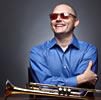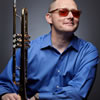It’s taken me a while to collect my thoughts on the imminent closing of Tula’s Jazz Club. Here’s my best effort:
I played my first gig at Tula’s Jazz Club in 1996. My brother and I had a band that played there every Monday night. You could smoke at the bar back then, but I wasn’t quite 21 yet. Over the 20-plus years that followed, I learned almost every aspect of being a professional jazz musician from working gigs at Tula’s. Not only was I able to develop my skill as a musician, sideman and bandleader, I also learned how to communicate with the audience, negotiate pay with other musicians and with management, effectively promote shows, and present other artists. Tula’s was a big part of my jazz education, and the skills I developed there have allowed me to have something of a career beyond Seattle.
The proper place for jazz music has always been the nightclub, where you can get right in the musician’s face. I know not everyone had a perfect experience at Tula’s (customers and performers alike), but for the jazz fan who arrives in Seattle with an itch for the journey that live jazz performance is – where do we send them? For more than twenty years, you could reliably say “Tula’s,” and know there would be jazz on the stage. It’s the only place in town that could make that claim. Some clubs have jazz, but only some of the time. They do that for lots of reasons, some of them financial. Tula’s had jazz – all of the time. Was all of it great music? No. But that’s what you get in a community – some people working their way up, some people keeping the bar high, and everything in between.
Tula’s was one of the last venues where being local was an asset, rather than a liability. Tula’s charged a cover that reflected their appreciation and value for the music, and for the musician. My fans always knew they could find me at Tula’s, even if some of them wouldn’t go there. If you worked at Tula’s as a sideman, they would probably give you an opportunity to have a night of your own. Some people were ready, some weren’t, but Tula’s gave them the grace and the space regardless. That’s our traditional form of learning and getting better, sometimes known as “paying dues” – which has become harder and harder to do these days due to lack of opportunity. Venues where the “up-and-comers” and the “elders” share equal space facilitate this. Tula’s was that place for us.
Being a musician in the current day is incredibly hard – we rely mostly on each other to make things happen. With Tula’s as a willing partner, I was able to reciprocate the kindness other musicians showed me by facilitating gigs in Seattle for some world class talent. I’m grateful to say I was able to arrange gigs for Bobby Shew, Joe Locke, Spike Wilner, Brian Lynch, Bill Watrous, Orrin Evans, Gary Smulyan, Stafford Hunter, Doug Beavers, David Gibson, Victor North, Eric Revis, Ralph Peterson, Ray Vega, Bobby Porcelli, Calixto Oviedo, Travis Shook, Alan Jones, Luques & Zaccai Curtis, Chris Beck, George Colligan, Cory Weeds, Darrell Grant, Essiet Essiet, & Roy McCurdy at Tula’s (not to mention countless incredible resident artists. With Tula’s partnership, these musicians had a place to play in Seattle, and our community members had the opportunity to play with and learn from them.
I know there were lean(er) years at Tula’s. In the early 2000’s, Mack Waldron, Tula’s owner and proprietor, repeatedly offered to sell me the club. Eventually he offered to give it to me, and I know I wasn’t the only one he made that offer to. After Jason Moore took over the management, Tula’s did much better – they were in the black and made a little money. Like the musicians who played there, it wasn’t a lot of money. Definitely not enough money to get by in the new Seattle. But also like the musicians who played there, it was never really about the money. It was about music, community and fellowship. So few people are willing to make that journey with us. We owe Mack and Jason a huge debt of gratitude for giving us their time, energy and love for so many years.
If you’re a working musician, you don’t go to an office every day to get your work done, but for many of us in the jazz community, Tula’s was our office. There wasn’t a “green-room,” but there was a large round table at the back of the dining room reserved for musicians. It was like a family table and you could always drop in and see a few family members gathered around it. Beyond work, Tula’s was a part of my real family experience. My parents were steady regulars at Tula’s, not just at my own shows but many others as well. They were such a constant presence, the club always seated them at “their table,” and after he died, a plaque was placed on the wall in my father’s honor as “The Bopfather” of Tula’s. It’s strange to think that spot won’t exist any more.
Tula’s was home to the annual jazz musician’s Christmas Party and hosted many memorials when one of our own passed away. I learned how to drink, how to drink too much, and how to be sober while working gigs at Tula’s. I saw my father alive for the last time at Tula’s. It’s a real part of my personal journey, good and bad. All of this is due to the hard work and dedication of Mack Waldron and Jason Moore. While I’m sad that Tula’s time is over, I’m incredibly grateful for the endless hours of hard work they put into the venue so we could have a place to work, play, laugh and cry. I’ll miss it. I also know the community Tula’s was so central to will go on without the club, and I look forward to what comes next.
I’m playing with my band at Tula’s August 9 & 10, with my final performance there on September 14th. Please join us.











